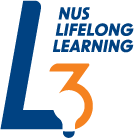Objectives
Learn to appreciate the working principles and benefits offered by different types of smart sensors and instrumentation and their applications. Understand the role of communication in the interoperability of automation systems and evolution of control systems, and to relate smart sensors and instrumentation to Industrial Internet of Things (IIoT) and general digital transformation.
Who Should Attend
Data Analyst, Data Engineer, Business Intelligence Manager, Senior Data Engineer, Data Scientist, Information Architect, Senior Data Scientist
Entry Requirements
Relevant Bachelor's Degree in electrical/electronicsmechanical/chemical/mechatronics/computer engineering and related disciplines.
Class Schedule
Wednesday (6.00 PM - 9.00 PM), Weeks 1-6
Lesson Delivery
1. Facilitated Learning - 18 hours;
2. Assessment - 2 hours.
Last updated: 09 May 2025


